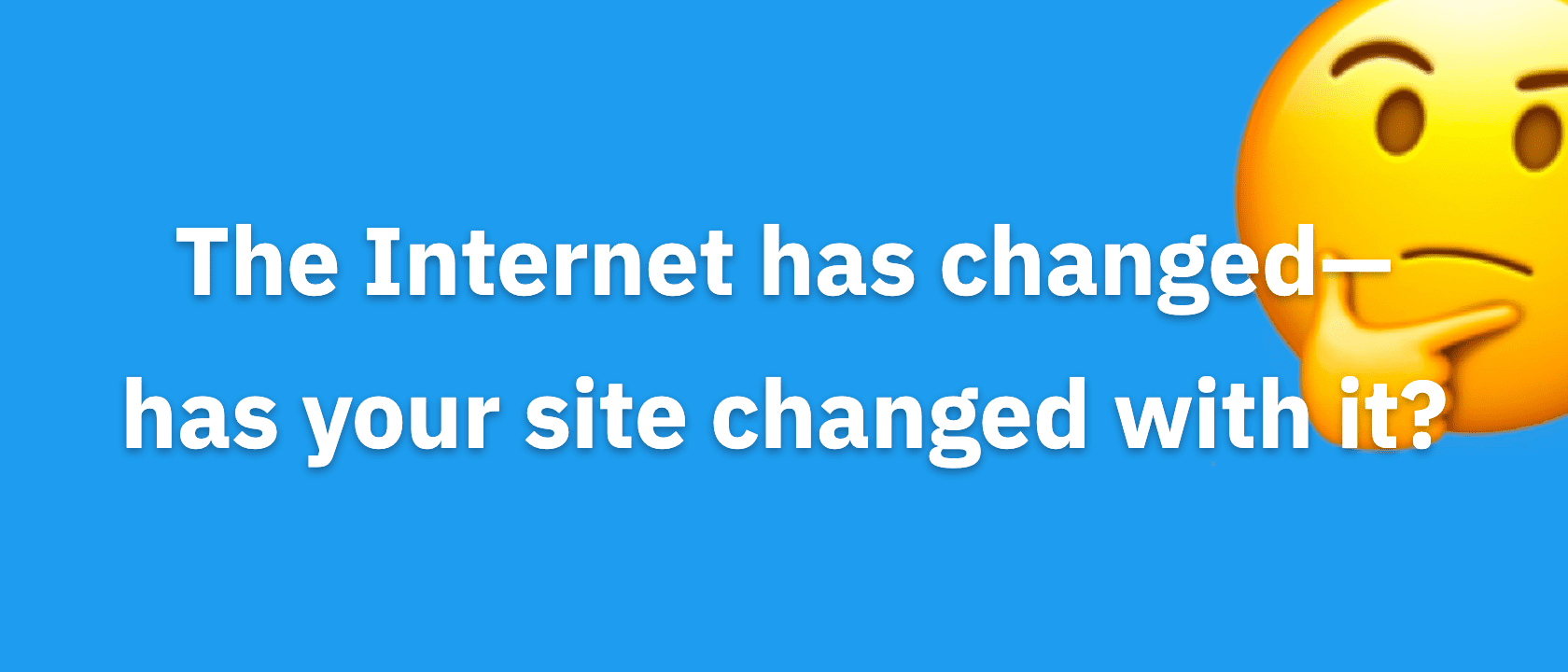This article is deprecated! Any technical information refers to software versions that are now obsolete. Please visit the DIYthemes Blog for current updates, or check out the old Thesis Blog for a treasure trove of website marketing insights.
The point of Thesis’ existence can be summed up in one word: efficiency. With each new release, this code framework solves more and more fundamental problems of running a Website, thereby making it easier for you to go about achieving your online goals.
Version 1.3.2 is no exception, and it includes some specific measures that will help you squeeze every last drop of efficiency out of the things you do to improve your site. Read up on the latest and greatest additions to the ultimate Website framework.
SEO Plugin Compatibility
The most exciting improvement to Thesis comes in the way of plugin compatibility. Specifically, the framework now supports both the All-in-One SEO plugin and the SEO Title Tag plugin, which are arguably the two most popular SEO plugins in the WordPress community.
The integration is seamless—if you’re using either plugin, Thesis will detect this and serve your titles accordingly. You won’t have to do a thing, and you’ll be able to keep all of your meta descriptions, meta keywords, and customized <title> tags.
More SEO Options and Improvements
Now, if you’re reading this thinking that you should run out and put one of these SEO plugins to work on your site, think again! With Thesis 1.3.2, you can specify both meta descriptions and keywords on every post or page of your site (by way of custom fields), so unless you’re already using these plugins, there’s really no need to add them. Remember, the mantra here is efficiency, and the need for fewer plugins is definitely a step in that direction.
Oh, and on that note, Thesis now detects when you last modified your custom.css file, and it ensures that users will see your latest and greatest styles instead of old, crusty, cached ones.
Finally, all archive and search pages now have their <title> tags appended with an identifier that tells users which page they’re viewing. To illustrate, simply check out the <title> tag on paginated pages here on this site (note that “Page 2” has been appended to it).
Improved Multimedia Box Functionality
When version 1.3 arrived, it brought with it some changes to the logic behind the multimedia box, and unfortunately, these changes also caused a problem with the behavior of the box. Basically, if you elected not to use it sitewide but attempted to override this setting on a particular post or page, you were unable to do so.
As of version 1.3.2, this problem has been solved, and to the delight of many of you, this new solution also provides for an unprecedented level of control over the content of the multimedia box. Now, if you select “custom code” for the box, you’ll have access to a new hook, thesis_hook_multimedia_box.
The real beauty here is that you can inject anything you want through this hook—highly targeted affiliate ads, polls, videos, content, Flash, you name it. If you were so inclined, you could literally serve something unique, targeted, and different inside the multimedia box on every page of your site.
Seriously, that’s like whoa.
Oh, but what if you’re using the box for something else by default, or better yet, what if you’re not using it at all? No problem—if you still want to access the multimedia box hook on a post or page (for injecting PHP, perhaps), all you need to do is add a custom field with a key of custom and a value of php.
New Page Template Functionality and Hooks
By default, Thesis comes with a simple page template that you can use to create an archives page with links to both your monthly and category archives. This is all fine and good, but what if you’d like to do something different with your archives page? In prior versions of Thesis, you were out of luck, but now you can use the thesis_hook_archives_template hook to make your archives template display whatever you want!
In addition, some of you may encounter situations where you need to create your own page templates. By using the new “Custom Template” page template, you’ll gain access to a new hook, thesis_hook_custom_template, and you can use that to inject anything you want into the #content_box (the space between the header and footer of your site).
Design and Layout Changes
Design-wise, the biggest problem in version 1.3 was a layout issue that occurred with Internet Explorer 6 and 7 when those browsers were set to a text size of “smaller.” The solution won’t have any noticeable effect on your site, but it does change the optimal header image widths by 1 pixel in all 2 and 3-column layouts.
Next, there are quite a few minor improvements to the core HTML and CSS. Specifically, the dt elements in the comment markup are now completely valid, and I’ve also removed all :visited declarations from the CSS that controls link styles throughout the theme.
The Bottom Line
Whether you’re operating online or off, creativity is the key to your future success. Messing with code, switching themes, and constantly changing the variables of your work environment are all things that stifle creativity and force you to fight uphill battles.
Stop settling for inefficiencies, and instead, start focusing on the creative things that you can do to extend your reach and your own effectiveness. If you’re running a Website to help you accomplish this (and you darn well should be!), then you can use Thesis to remove these fundamental site-building obstacles, and this will leave you with more time to focus on the things that will yield higher returns down the road!
